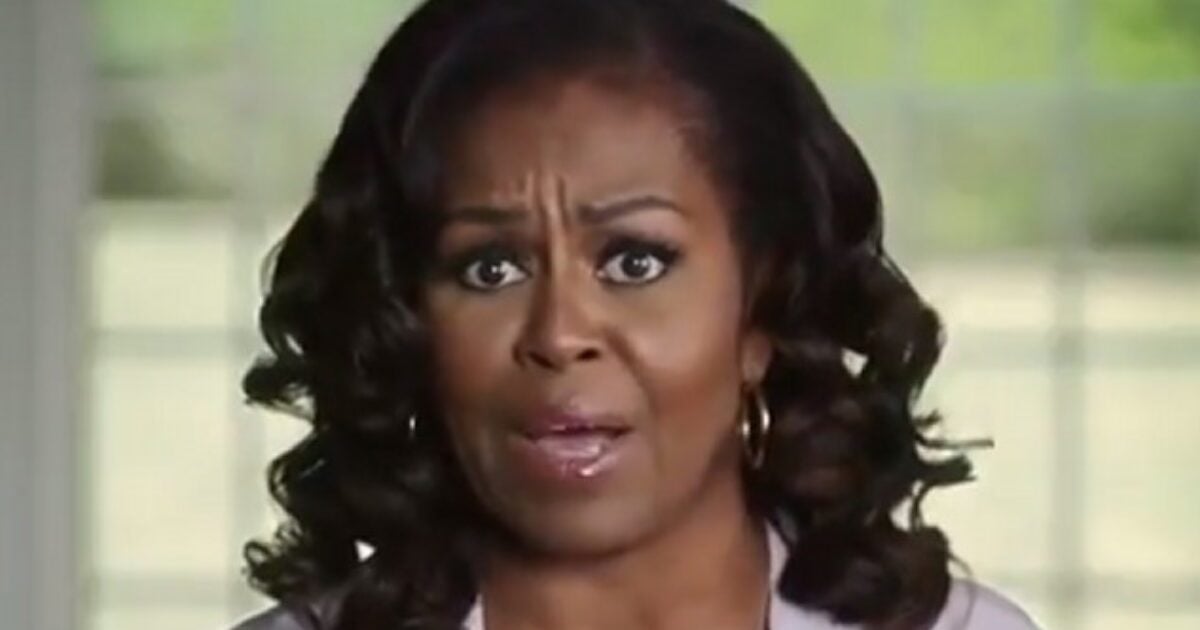Politics
Bitter Michelle Obama Releases Statement Following SCOTUS Historic Ruling Against Affirmative Action – But Conveniently Leaves Out Why She Was Accepted to Princeton

In a historic ruling, The Supreme Court on Thursday ruled that the Harvard and UNC race-based affirmative action programs are unconstitutional.
Schools nationwide will no longer be able to discriminate against students on the basis of race.
How outlandish were Harvard’s affirmative action policies?
An African American student placed within the 40th percentile of their academic index is more likely to gain admission than an Asian student who ranks in the topmost, 100th percentile.
Similarly, Black students who fall within the 50th percentile have greater chances of acceptance than White students who are at the pinnacle of their academic performance.
How insane did Harvard’s affirmative action policies get?
An African American student in the 40th percentile of their academic index is more likely to get it than an Asian student in the 100th percentile.
Black students in the 50th percentile are more likely to get in that… pic.twitter.com/9vvBuQXA24
— Greg Price (@greg_price11) June 29, 2023
Following the ruling, bitter Michelle Obama, issued a statement.
Back in college, I was one of the few Black students on my campus, and I was proud of getting into such a respected school. I knew I’d worked hard for it. But still, I sometimes wondered if people thought I got there because of affirmative action. It was a shadow that students like me couldn’t shake, whether those doubts came from the outside or inside our own minds.
But the fact is this: I belonged. And semester after semester, decade after decade, for more than half a century, countless students like me showed they belonged, too. It wasn’t just the kids of color who benefitted, either. Every student who heard a perspective they might not have encountered, who had an assumption challenged, who had their minds and their hearts opened gained a lot as well. It wasn’t perfect, but there’s no doubt that it helped offer new ladders of opportunity for those who, throughout our history, have too often been denied a chance to show how fast they can climb.
Of course, students on my campus and countless others across the country were – and continue to be – granted special consideration for admissions. Some have parents who graduated from the same school. Others have families who can afford coaches to help them run faster or hit a ball harder. Others go to high schools with lavish resources for tutors and extensive standardized test prep that help them score higher on college entrance exams.
We don’t usually question if those students belong. So often, we just accept that money, power, and privilege are perfectly justifiable forms of affirmative action, while kids growing up like I did are expected to compete when the ground is anything but level.
So today, my heart breaks for any young person out there who’s wondering what their future holds – and what kinds of chances will be open to them. And while I know the strength and grit that lies inside kids who have always had to sweat a little more to climb the same ladders, I hope and I pray that the rest of us are willing to sweat a little, too. Today is a reminder that we’ve got to do the work not just to enact policies that reflect our values of* equity and fairness, but to truly make those values real in all of our schools, workplaces, and neighborhoods.”
Michelle Obama points to her own experiences as proof positive of the benefits of affirmative action. In doing so, she conflates her individual success story with the systematic implementation of racial preferences that Harvard and other universities have been practicing for decades.
However, Michelle Obama conveniently forgot to mention why she was accepted into Princeton when her test scores were so low.
The Gateway Pundit reported this back in May 2008.
How did she reach over that bar that they’re always raising and get accepted into Princeton?
Here’s how…
Older brother Craig Robinson, the basketball coach at Oregon State University, and Michelle enjoy an afternoon together at Georgetown.
Craig Robinson, who preceded his sister at Princeton to become its fourth highest-scoring basketball player. Robinson was a two-time Ivy League Player of the Year at Princeton University, graduating in 1983 with an AB in Sociology.
During Michelle Obama’s junior year in high school, Michelle visited Craig at Princeton University, which had recruited him to play basketball (at 6 feet 7, he became the school’s fourth-leading scorer in its history). She set her sights on following Craig, also an excellent student. But, Michelle did not have high enough test scores.
Michelle’s mother talked about Michelle’s difficulty in taking tests. Something that she still regrets to this day.
Newsweek reported:
For Michelle, Craig’s easy success was intimidating. “She was disappointed in herself,” her mother tells NEWSWEEK. “She used to have a little bit of trouble with tests, so she did whatever she had to, to make up for that. I’m sure it was psychological because she was hardworking and she had a brother who could pass a test just by carrying a book under his arm. When you are around someone like that, even if you are OK, you want to be as good or better.”
…Some of her teachers told her she didn’t have the grades or test scores to make it to the Ivies. But she applied to Princeton and was accepted.
So, how did she do it? How did she get accepted to Princeton even though she did not have high enough test scores?
A campaign official answered that question for Michelle:
A campaign spokeswoman says she had an edge getting into Princeton not because of affirmative action, but because her older brother was there as a scholar athlete.
Thank God for big brother Craig.
Michelle conveniently left this out of her screed today.
Read the full article here


















